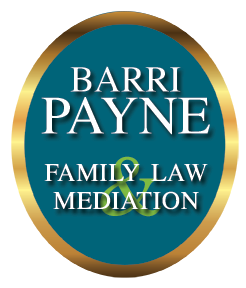
DIVORCE MEDIATION
CRITICAL NEGOTIATION SKILLS FOR THE SETTLEMENT OF YOUR DIVORCE
Rather than spending extensive time and money on court hearings, many of our clients select mediation as an alternate option. Mediation is a method of dispute resolution that encourages parties to resolve issues in a non-adversarial way with the help of a trained, neutral mediator.
Mediation is a tool that got its initial foothold in civil litigation matters involving huge financial settlements back in the early 90s. Quickly, lawyers and courts alike understood the value that creative agreements can have in resolving conflict. Now, mediation is a standard element of almost every civil lawsuit filed. The process can have many different faces. The general concept is that parties air their needs and issues in a private forum to a professional neutral called a mediator. Mediators are specially trained listeners and evaluators that assist families in conflict to find common ground. During the mediation process, you and your lawyer have broad opportunity to ensure the elements most important to you are heard and the mediator helps parties find solutions that are fair and appropriate in light of the family’s unique circumstances and issues.
There are many types of mediation that can be used to resolve almost any sort of civil issue. Family Financial Settlement mediators are trained to work with all issues of family law to resolve issues of child and spousal support, custody, and equitable distribution. Other mediators work to resolve contract disputes, negotiate partition sales, and resolve all sorts of civil litigation matters.
Mediation is often a flexible, accommodating experience where needs and interests can be throughly discussed and explored which would not be possible in a court hearing. Then, an agreement reached during mediation can be made into a Court Order, enforceable like any other Court Order, or into a Separation Agreement or other contract. An Order reached through mediation is also subject to the same standards as a Court Order for any future modifications.
Mediation is a voluntary process. There is nothing about mediation that requires a definitive resolution. This can be beneficial in allowing parties to resolve only the issues that they want at a pace that is appropriate for their situation. However, mediation is required by the NC statutes and family courts for child custody and equitable distribution cases. Additionally, it can be very helpful for resolving all other issues as well.
In both Durham and Wake Counties, residents are lucky to have a specialized Family Court system. Family Courts employ specially trained staff who work with the Judges to schedule matters in as efficient a manner as possible. Counties with Family Courts also have a detailed set of Rules which all attorneys and litigants must follow and which are designed to assist parties with receiving the information that they need to mediate their cases effectively and to provide the information the Courts need to ultimately decide the cases if mediation is not successful.
Barri Payne is a Board Certified Specialist in Family Law. She has helped clients successfully negotiate lasting resolutions in their divorces through the use of mediation. Additionally, Barri is a certified family financial mediator herself, bringing extra skill to the process and to her ability to provide her clients with realistic expectations about what mediation might be able to achieve for their case.
Call Barri to find out more about amicably resolving your separation and divorce issues through mediation or other tools. She can provide you with a thorough explanation of mediation and other collaborative processes to negotiate your matter in a peaceful manner.
Looking for a Mediator?
Visit our Mediation Services Page

